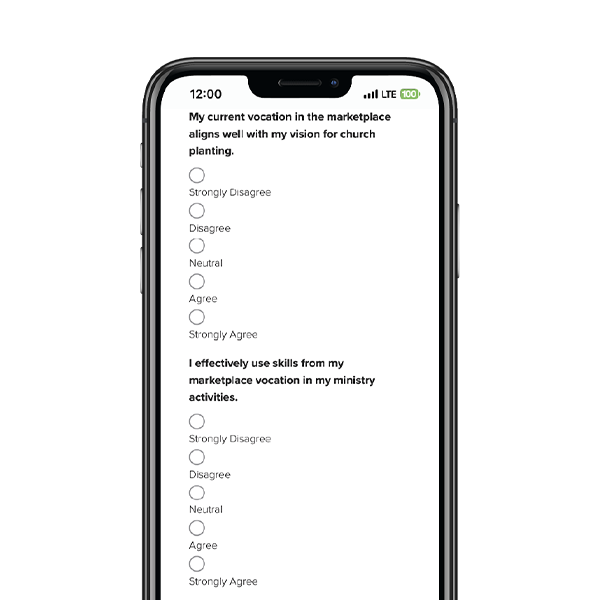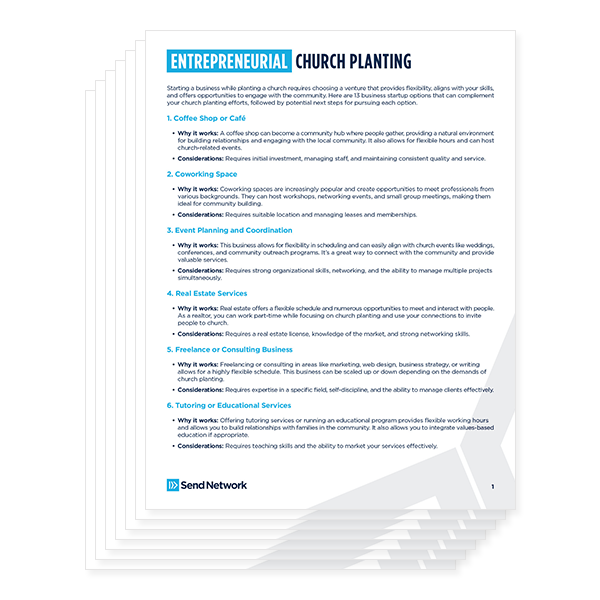If you’ve heard me speak or if you’ve read any of my books, what I’m about to write shouldn’t be new to you; if you’re an adopted child of God, you’re not just called to be a recipient of saving grace, you’ve now been called to be a participant of that same redeeming grace.
In other words: pastors aren’t supposed to be the only Christians in ministry.
Every believer is called to be in ministry, not necessarily by vocation (in a salaried position), and not even in an organized way (like a volunteer Sunday school teacher or youth group leader), but through a lifestyle of intentional ambassadorial behavior.
What does “intentional ambassadorial behavior” mean? That’s what this post is about.
Incarnational ambassadorial behavior
One of my all-time favorite verses is 2 Corinthians 5:20: “Therefore, we are ambassadors for Christ, God making his appeal through us. We implore you on behalf of Christ, be reconciled to God” (ESV).
The Apostle Paul isn’t writing this letter to a seminary class of aspiring pastors before graduation. No, this letter is directed to all Christians, no matter their occupation pastors, school teachers, personal trainers, garbage collectors, stock brokers, moms, police officers. Everyone. Everywhere. All the time.
This should be a basic political review: the job of an ambassador is to represent someone or something. Everything he or she does and says must intentionally represent a leader who isn’t physically present. An ambassador isn’t limited by forty hours a week, to certain state events, or to times of international crisis. An ambassador is always on call, always representing the king.
In other words, the work of an ambassador is incarnational. Their actions, character, and words embody the king who isn’t present. In the same way, the Apostle Paul teaches that God has called us all to function as His incarnational ambassadors. Everything we say and do has import because of the King we represent.
This isn’t a part-time calling; it’s a lifestyle. We represent God’s purposes to the people He places in our lives. The primary question on our mind should be: “How can I best represent the King in this place, with this particular person?” This is much broader than a commitment to organized ministry activity occupying a portion of our weekly schedule.
You see, I’m convinced that many of us have misunderstood ministry. We think it’s clocking in and clocking out, either as a paid employee or as a volunteer. But God has something radically different in mind. He wants us on call in every conversation and in every interaction.
- In what ways have you reduced ministry down to an organized activity on your calendar?
Your my kingdom come
When we become ambassadors for Christ, our lives cease to be our own. We need to acknowledge that our lives belong to another Person now. But if we’re honest, this is where we fall into trouble: we don’t really want to live as ambassadors, at least not ALL the time.
Some days, I would rather live as a mini-king. I know what I like and the people I want to be with. I know the kind of house I’d like to own and the car I want to drive. Without even recognizing it, I quickly fall into a “my kingdom come, my will be done” lifestyle.
Why does it seem that people, things, and situations get in our way? Why do we seldom go through a day without some experience of conflict? The answer is that we view our lives as our own. Often, we’re more committed to the purposes of our own little kingdom than we are to God’s eternal kingdom.
This is why Christ said that to be his disciples, we must die to ourselves (Luke 9:23, Galatians 2:20) and why no one can serve two masters (Matthew 6:24). We, as ambassadors, must sacrifice our own kingship before we can properly represent the one true King.
The biggest reason for lack of ministry in the church and in our culture isn’t a lack of training. It’s our hearts.
- Where is God specifically calling you to die to yourself so you can live for a kingdom much bigger than your own?
Making His appeal
So, if we know what God’s intention for ministry is (everyone, everywhere, all the time), and if we know what the biggest obstacle to our ministry lifestyle is (our hearts pursuing the kingdom of self), what then is the best way to minister to others?
It’s right there in the text: “We implore you on behalf of Christ, be reconciled to God.”
Certainly, this directive has evangelistic application. Believers should look for opportunities to implore non-believers to be reconciled with God so they can experience eternal life. But in the context of this passage, Paul has another line of reasoning.
Look back a few verses – “For the love of Christ controls us, because we have concluded this: that one has died for all, therefore all have died; and he died for all, that those who live might no longer live for themselves but for him who for their sake died and was raised.” (2 Corinthians 14:15)
Paul is saying that the purpose of the Cross is not just to secure an eternity for sinners, but to also recapture the hearts of God’s people to serve God alone. Our sin not only separates us from God, but even after we’ve be reconciled to God through justification, our remaining sin causes us to be incredibly self-absorbed, reducing us to idolatrous worshippers of self.
The focus of Christ’s work is to deliver us from our bondage to ourselves, even after we’ve been saved! As long as sin indwells us, which it will until Jesus returns or we’re taken home, we tend to wander away from the worship of God and serve ourselves.
God is intent on owning our hearts unchallenged. His goal is that our lives would be shaped by a worship of him and nothing else. And, he has chosen to send us as his ambassadors to make his appeal for people’s hearts.
What an exciting calling!
Link to Original Post:
https://www.paultripp.com/articles/posts/ambassadors-for-christ
Published July 6, 2017




